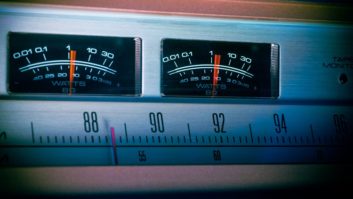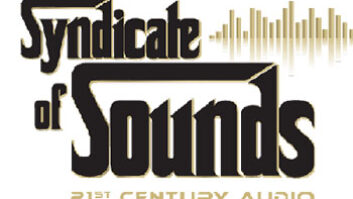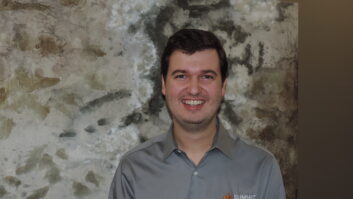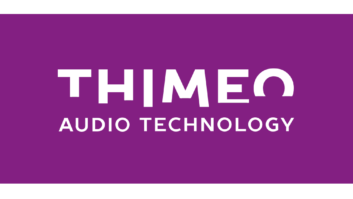Prophet Systems’ Software Logs Multiple Stations, Offers Archiving Routine and Interfaces to NexGen
It seems inevitable that the FCC will soon be requiring all broadcasters to have in place some form of audio logging software or other means of recording programs. Like it or not, broadcasters need to adapt to these changing climates in a way that makes sense, both financially and practically.
Product CapsuleTHUMBS UP:
Can log multiple stations
Supports both compressed and uncompressed audio formats
Interfaces well with NexGen automation systems
THUMBS DOWN:
Poor user interface
Inadequate user documentation
Runs on only Windows XP
PRICE: $495
CONTACT: Prophet Systems Innovations in Nebraska at (877) 774-1010 or visit www.prophetsys.com
Here at Crawford Broadcasting Co. I have had a chance to examine thoroughly the latest offering from Prophet Systems Inc. Its DigiLogger software is designed for all levels of broadcasters – from single-station operation to large clusters. The package is sold as a software solution, and runs on a standard PC architecture using the Windows XP operating system.
Crawford Broadcasting is no stranger to Prophet Systems’ products. Our company standardized on its NexGen broadcast automation packages many years ago. It seemed logical the company that made our automation system would also be the best candidate for supplying us with a logging system.
DigiLogger, in the base configuration, will record one stereo input in one of three user-selectable formats. The default is to record it as a 128 kbps MPEG-1 Layer 3 audio file. However, a Windows Media Player format and raw PCM format are selectable as well.
Prophet Systems is testing other encoding schemes, which may be included in future releases of the software, including Ogg Vorbis. In the default configuration, each hour of recording consumes approximately 70 MB of disk space per station.
On-site
The package I received came with the DigiLogger software, a PC and a Layla audio interface. The Layla is a nice device, with up to four stereo inputs available, enabling it simultaneously to capture the audio from four sources. We are utilizing all four inputs for our four Denver stations.
The system we received did not work out of the box. The first unit I received had software issues. Prophet Systems performed a software upgrade that fixed the initial problems, but created new bugs. I decided to ship the package back to Prophet Systems, where they spent some time working everything out.
I received the new unit, which came with the latest version of the Layla3G audio interface. Though after using it for about 10 minutes, I was able to crash the system. Another call to Prophet Systems was made, and they sent down the programmer who designed the software, Dustin Bond, to assist me in getting the DigiLogger to operate properly.
Bond worked for a couple of hours on the code, making a few tweaks and patching a few holes. By the time he had departed that afternoon the software was operating flawlessly.
We must note here that the DigiLogger was still in the beta stage when we received it. The bugs we unearthed in Denver have been fixed, and we will continue to assist Prophet Systems in the testing of the software.
From a user standpoint the DigiLogger interface is lacking in some areas. It’s not that intuitive and has a cumbersome interface, which makes navigation difficult. The Web interface, used for playing back audio recorded on the DigiLogger, is somewhat better in its design.
Both user interfaces are scheduled for an overhaul, and the second version of the software is expected to be a vast improvement over the initial release.
Another problem is with the help file, which does not offer much information on the operation and configuration of the DigiLogger. Bond informed me that Prophet is developing a much better online help system for the product.
One particularly nice feature is the way DigiLogger interfaces to the NexGen automation package. If you use NexGen, you will be pleased to know that DigiLogger can take entries from the NexGen database, and display them in the Web interface. What this means is you can play back audio from any spot that aired once the DigiLogger has finished recording. Imagine how much easier it will be to prove to a client his “After Christmas Sale” commercial really did run on the day after Christmas.
A downside to the NexGen log files is that the export times, which indicate the time the spot actually played on the automation, are real-time entries. For stations using a profanity delay, the spot times listed on the screen in DigiLogger would be wrong by the same amount that the on-air signal is delayed. Prophet Systems is pondering a work-around for the issue.
In addition to these features an archiving routine is available that will permit the user to select a limit for the length of time that audio is stored in the default format before being converted to a lower-quality format for long-term storage purposes. The archival routines also have the ability to move the audio files off the local DigiLogger computer and on to another system – perhaps a larger server – where they can be stored for as long as necessary.
Overall I would say I am mildly pleased with the DigiLogger package. For a first release of the software it’s not bad. And if all the changes Prophet is working on are implemented, I’m convinced it will become one of the best audio logging packages available.
DigiLogger software retails for $495 for a single station. Each additional station will cost $250.
The software runs on Microsoft Windows XP only, and will not operate on other platforms. A system with a moderate to large capacity hard drive is recommended, as the audio files the software creates will consume quite a bit of space.












